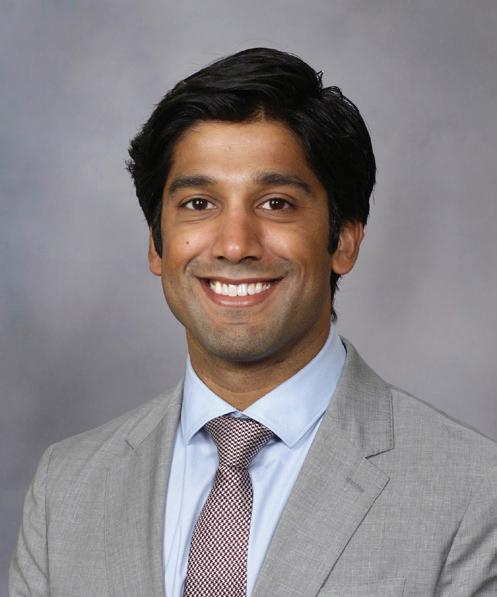Feedback from Preceptors: the Good, the Bad...and the Very Good For their third and fourth years of medical school, student doctors enter the clinical portion of their education. In this learning environment, they rotate between different clinics and specialties, applying their medical knowledge to real patients. Of course, students see patients under the supervision of a preceptor, a licensed physician who helps them hone their skills. During a series of receptions to honor their service, preceptors enthusiastically shared an abundance of stories about RVU students: the moments in which they surpassed expectations during a case, their affinity for research, their ease when interacting with patients, and their dedication to the practice of medicine. "These kids can’t wait to learn," said Dr. Oscar Noel, an RVUCOM graduate from Class of 2012 who is now a preceptor for the school. "When I'm shorthanded on a case, I've had students stay regardless of their requirements. Their willingness to stick through shows a lot of heart." In one story a preceptor shared, an RVU student potentially saved her colleague’s life. While shadowing another physician in the clinic, the student noticed that he was exhibiting signs of amnesia during their patient encounters. The student continued to take detailed notes on all the patients they saw for the day, while keeping an eye on the physician, who was worsening as the day progressed. Finally, the student approached the preceptor with concern that the other physician had had a stroke earlier in the day (which turned out to be the case). In the preceptor's words, the student "carried the clinic by themselves and probably saved [my partner’s] life."
Tips from Preceptors
When asked how RVU students could improve on externships, preceptors offered the following: • Learn how to organize your history of present illness and be concise in your presentation; it's a story—tell it • Turn off "Dr. Google" • Even if it's not your specialty or area of interest, stay enthusiastic about it • Develop memorization skills and stop relying on a notepad • Brush up on gastroenterology and your ability to give differentials in it • Read about particular cases on your own, without being told; preceptors will eventually expect their students to show initiative • You don’t have to know everything. With hard work and teamwork, you can find the diagnosis or issue at hand • It’s okay to make mistakes and acknowledge them; it is an opportunity to learn • Be humble in your approach to the practice of medicine • The way you behave outside of the hospital is just as important as the way you behave in the hospital • Identify what you want out of your externship and what your weaknesses are; this way you and your preceptor can tailor the experience • Be willing to make and order a differential diagnosis • Become familiar with the business side of medicine • Reconnect with your basic sciences and physiology
Students were also praised for their ability to inspire others through curiosity and their ease with speaking to patients and keeping others active and knowledgeable. "They fix my computer," one preceptor added excitedly. As for the preceptors themselves, they were recognized for creating a safe environment for students to learn in, being innovative in their approach to teaching, and for helping students excel in patient encounters and in the practice of medicine.
Vista View
11













